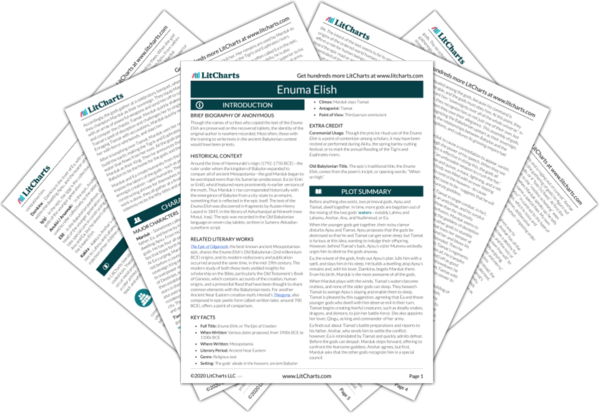Marduk “[suckles] the teats of goddesses,” which “[fills] him with awesomeness.” He has a “proud” form and a “piercing” stare, and he is mature and powerful from the beginning.
Anu, his grandfather, rejoices with pride when he sees Marduk, who is so perfect that “his godhead [is] doubled,” “elevated […] above” and superior to his predecessors “in every way.”
He has four all-perceiving eyes, four enormous ears, and lips that blaze forth fire.
